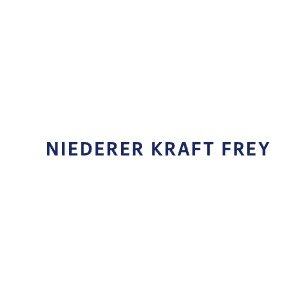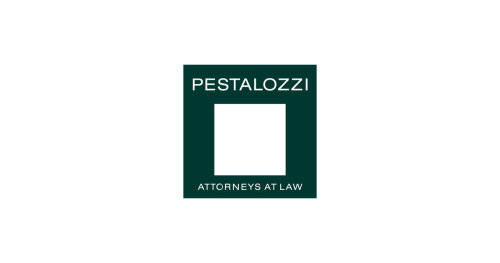Best Antitrust Lawyers in Zurich
Share your needs with us, get contacted by law firms.
Free. Takes 2 min.
List of the best lawyers in Zurich, Switzerland
About Antitrust Law in Zurich, Switzerland
Antitrust law in Zurich, Switzerland, plays a crucial role in maintaining competitive markets and preventing monopolistic practices. Rooted in both Swiss federal legislation and European Union competition policies, antitrust laws aim to ensure fair competition, protect consumer interests, and encourage innovation and economic growth. Zurich, as a significant financial and business hub, sees a dynamic interplay of local and international businesses which makes antitrust law an essential aspect of ensuring a level playing field. The Swiss Competition Commission (COMCO) is the primary authority overseeing the enforcement of these laws.
Why You May Need a Lawyer
There are several situations where individuals or businesses might require legal assistance in the field of antitrust. Common scenarios include mergers and acquisitions that might reduce competition, instances of price-fixing or collusion among competitors, abusive practices by dominant market players, and complex supply chain agreements that may inadvertently breach competition law. A lawyer specializing in antitrust law can provide vital guidance, ensuring compliance with regulations, representing interests in investigations, and defending against alleged violations.
Local Laws Overview
Swiss antitrust law is defined primarily by the Federal Act on Cartels and Other Restraints of Competition which outlines the rules against anti-competitive behaviors. Key aspects include:
- **Prohibition of Agreements that Restrict Competition**: Agreements between businesses that significantly limit competition or create monopolies are generally prohibited.
- **Abuse of Dominant Position**: Companies that hold significant market power must not engage in practices that unfairly limit competition or exploit consumers.
- **Merger Control**: Mergers and acquisitions are monitored to prevent the establishment of market dominance that negatively impacts competitive forces.
The Swiss approach aligns closely with EU regulations, offering a framework that is both comprehensive and adaptable to international trade dynamics.
Frequently Asked Questions
What constitutes a violation of antitrust laws in Zurich?
Violations include activities like price-fixing, market sharing, bid-rigging, abuse of dominant market position, and unlawful mergers that diminish competition.
How does Swiss antitrust law differ from EU regulations?
While Swiss laws often mirror EU regulations, there are distinct procedural and substantive nuances due to Switzerland's non-EU status, requiring specific local expertise in cross-border cases.
What should I do if I suspect my company is involved in anti-competitive practices?
Seek legal counsel immediately to conduct a compliance audit and understand your position. Legal experts can help navigate disclosure or leniency applications if necessary.
Can antitrust laws affect small businesses in Zurich?
Yes, although most regulations target large corporations, small businesses must also comply with laws, especially when forming partnerships or business agreements.
What are the consequences of breaching antitrust laws in Switzerland?
Penalties can include significant fines, reputational damage, and operational restrictions. In severe cases, criminal charges may be considered.
How is COMCO involved in antitrust regulation?
COMCO investigates alleged violations, enforces sanctions, and provides advisory opinions on compliance and regulatory matters in the field of competition.
Do I need to inform COMCO before a merger or acquisition?
Yes, if the transaction exceeds certain financial thresholds, prior notification to COMCO is mandatory to assess competitive impacts.
Are there defenses available against alleged antitrust violations?
Legal defenses may include demonstrating pro-competitive benefits or efficiency gains that outweigh anti-competitive effects, primarily for exemption considerations.
How long do antitrust investigations typically last?
The duration varies based on complexity and cooperation level, ranging from several months to a few years for comprehensive cases.
Is legal advice essential for drafting contracts under Swiss antitrust law?
Absolutely. Legal professionals ensure contracts align with antitrust regulations, preventing inadvertent infractions and subsequent liabilities.
Additional Resources
Individuals seeking more information or assistance can consult resources such as the Swiss Competition Commission's official site, the Zurich Bar Association, and the Federal Department of Economic Affairs, Education and Research (EAER). Additionally, numerous professional law firms in Zurich specialize in antitrust issues, offering tailored advice and representation.
Next Steps
If you require legal assistance in antitrust matters, it is advisable to consult a qualified lawyer with experience in Swiss competition law. Begin by evaluating the scope of your needs and gathering all relevant documentation. Contact a law firm specializing in competition law in Zurich to schedule a consultation, ensuring they understand both Swiss and international contexts. Furthermore, consider attending seminars or workshops on antitrust law to enhance your understanding of compliance requirements. Taking these proactive steps can significantly enhance your position and mitigate potential risks associated with antitrust issues.
Lawzana helps you find the best lawyers and law firms in Zurich through a curated and pre-screened list of qualified legal professionals. Our platform offers rankings and detailed profiles of attorneys and law firms, allowing you to compare based on practice areas, including Antitrust, experience, and client feedback.
Each profile includes a description of the firm's areas of practice, client reviews, team members and partners, year of establishment, spoken languages, office locations, contact information, social media presence, and any published articles or resources. Most firms on our platform speak English and are experienced in both local and international legal matters.
Get a quote from top-rated law firms in Zurich, Switzerland — quickly, securely, and without unnecessary hassle.
Disclaimer:
The information provided on this page is for general informational purposes only and does not constitute legal advice. While we strive to ensure the accuracy and relevance of the content, legal information may change over time, and interpretations of the law can vary. You should always consult with a qualified legal professional for advice specific to your situation.
We disclaim all liability for actions taken or not taken based on the content of this page. If you believe any information is incorrect or outdated, please contact us, and we will review and update it where appropriate.













